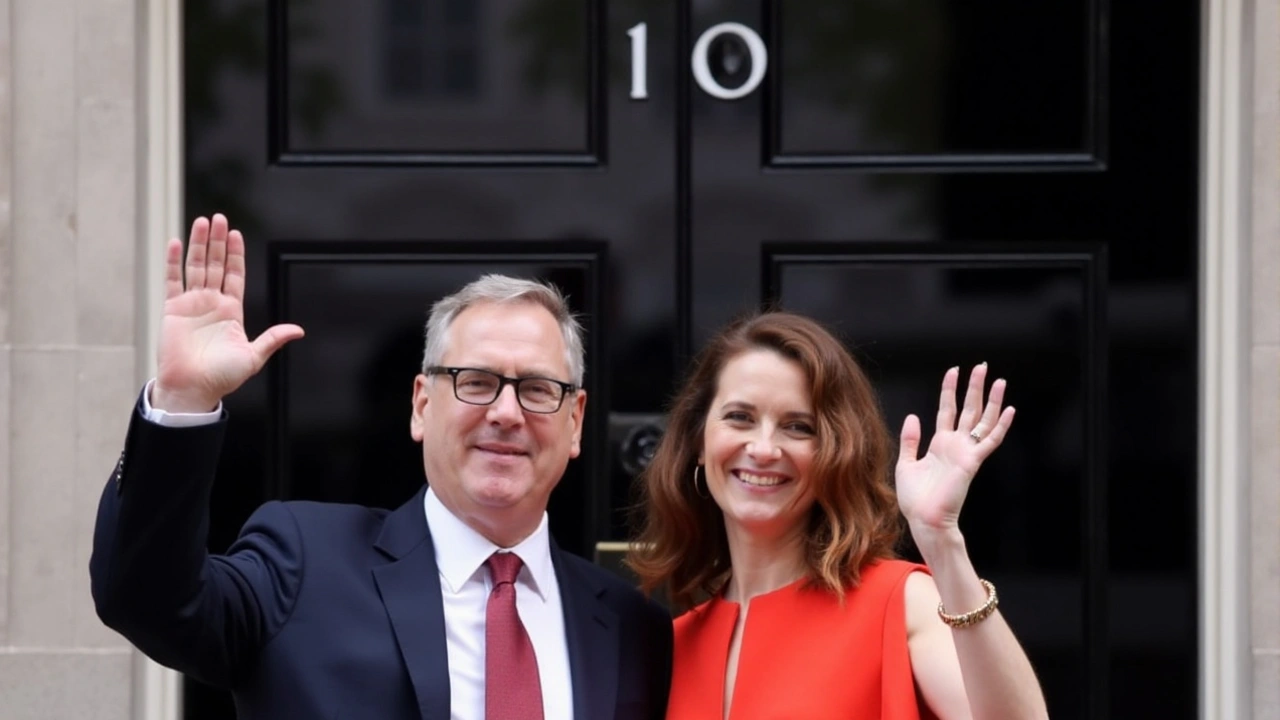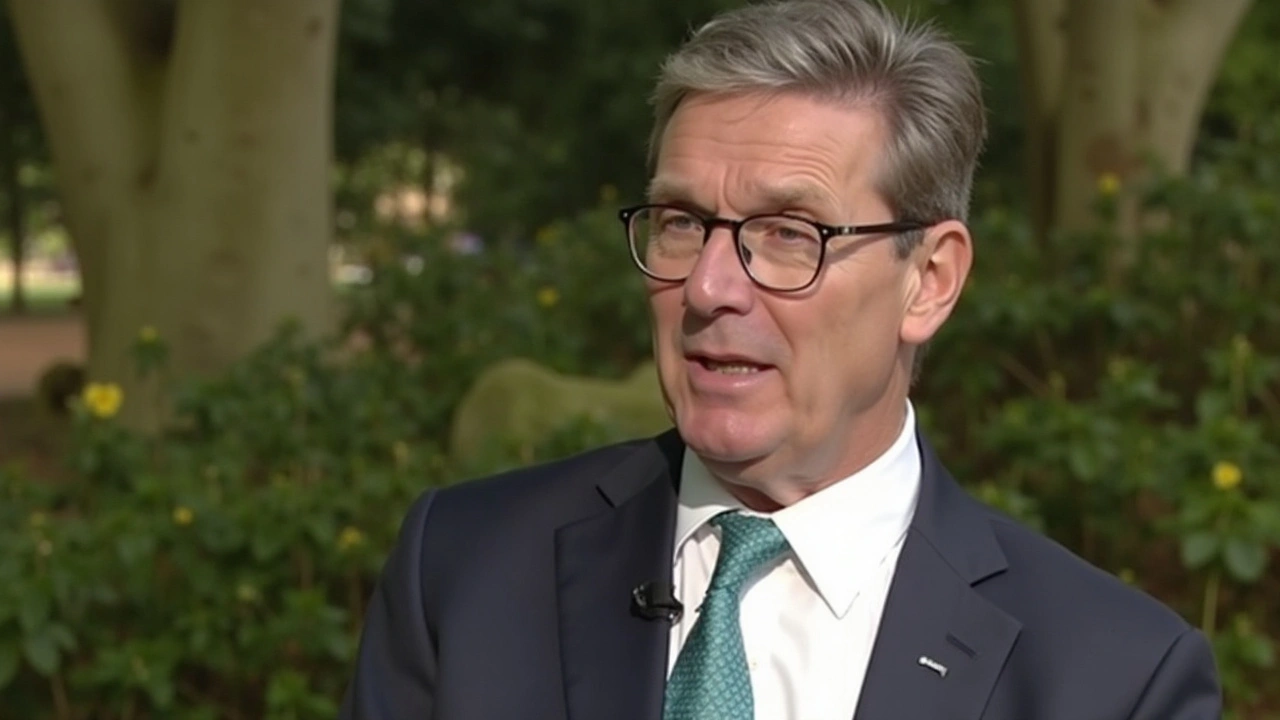Introduction: The 'Wardrobe-Gate' Controversy
The political landscape in the United Kingdom took an unexpected turn when Prime Minister Keir Starmer announced that he would no longer accept donations for clothing. This announcement comes in the wake of what has been dubbed 'wardrobe-gate,' a scandal that has elicited widespread criticism and questions regarding political integrity and transparency. Critics have accused Starmer of hypocrisy, with some suggesting that the Labour party has been engaging in practices that it has long accused its rivals, the Conservatives, of displaying. This article delves into the details of the 'wardrobe-gate' controversy, examining the accusations, the political fallout, and the implications for the Labour party as it heads into its annual conference.
The Controversy Unveiled
Keir Starmer found himself at the center of a storm when it came to light that he had accepted around £39,000 in free clothing and other gifts from donors, specifically from Lord Waheed Alli, a media magnate and a long-time supporter of Labour. This revelation has called into question the political integrity of Starmer and the Labour party. The controversy did not stop there; it was also revealed that Starmer's wife, Victoria Starmer, had received funding for clothing, including an outfit borrowed from designer Edeline Lee for a London Fashion Week show.
The issue of accepting gifts, particularly from wealthy individuals with significant influence, is a sensitive topic in British politics. It raises pertinent questions about ethical governance, transparency, and the avoidance of undue influence in political decisions. Critics argue that accepting such donations blurs the lines between professional duties and personal benefits, leading to an erosion of public trust in political figures.
Political Integrity and Public Trust
Starmer's decision to cease accepting clothing donations is a significant one, aimed at addressing these concerns head-on. According to Starmer, while he has maintained that all the gifts and donations were accepted following the rules, he acknowledged the necessity for a change in practice. "To restore public trust, it is essential that we not only follow the rules but are also seen to be following them," Starmer stated.
This move is strategically timed, as it comes just ahead of the Labour party's annual conference. It is an attempt to distance the party from allegations of cronyism and sleaze, terms that have often been levelled against their political rivals, the Conservatives. The Labour party has long criticized the Tories for unethical practices, and this scandal risks damaging Labour’s moral high ground.
The Financial Aspect
The financial aspect of this controversy cannot be ignored. The revelation that Starmer and his wife benefited from gifts totaling tens of thousands of pounds has been a point of contention. Critics argue that accepting such high-value gifts from wealthy donors could create a sense of obligation or bias, potentially influencing political decisions. This perspective has been fuelling the narrative that Labour is no different from the Conservatives when it comes to maintaining ethical boundaries concerning donor gifts.
Reactions from the Opposition
The Conservative party has not missed the opportunity to capitalize on this controversy. Opponents have suggested that Labour’s so-called commitment to ethical governance is nothing more than a façade. "It's clear that Labour is now embroiled in the same kind of cronyism they have criticized us for. The public deserves better," stated a Tory spokesperson. This sentiment reflects the broader public disappointment and scepticism that often follows such revelations, regardless of the political party involved.
Labour's Policy Shift
The decision to stop accepting clothing donations does not stand alone; it is part of a broader shift in policy within the Labour party. Deputy Prime Minister Angela Rayner and Chancellor Rachel Reeves will also follow the same guidelines, marking a significant change in how Labour handles donor gifts. This collective move suggests that Labour is keenly aware of the potential damage that the 'wardrobe-gate' scandal could inflict on its reputation and is taking comprehensive steps to mitigate it.
The policy shift highlights a growing awareness within the political sphere about the importance of maintaining ethical standards and transparency. It is a reminder that public perception and trust are vital commodities in politics, and any actions that jeopardize them must be addressed swiftly and decisively.
The Road Ahead
As Labour heads into its annual conference, the party will be keen to shift the focus away from the scandal and towards its policy agenda. The 'wardrobe-gate' controversy, while damaging, presents an opportunity for the party to demonstrate its commitment to ethical governance and transparency. By taking definitive action, Starmer and his colleagues can potentially regain public trust and steer the narrative in a more positive direction.
However, it remains to be seen how effective these measures will be in addressing the broader concerns around political donations and ethical governance. The controversy has undoubtedly left a mark, and it will take sustained efforts to rebuild the public’s confidence. Labour's ability to navigate this crisis and emerge stronger will be a crucial test of its leadership and commitment to integrity in the months to come.

Conclusion: Implications for British Politics
The 'wardrobe-gate' controversy has underscored the intricate relationship between political figures and wealthy donors. It serves as a stark reminder of the importance of transparency and ethical governance in maintaining public trust. While the Labour party has taken steps to address the issue, the lasting impact of the controversy will depend on the public's perception of these measures and the party’s ongoing commitment to ethical standards.
In a political climate where accusations of cronyism and sleaze can severely damage reputations, the Labour party’s response to this scandal will be closely scrutinized. The future of British politics will likely be shaped by how political parties handle such controversies and their willingness to uphold the principles of integrity and transparency.
